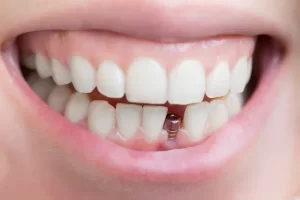
Oral cancer can start anywhere in the mouth as explained by a family and cosmetic dentistry in Jackson Heights. Chewing tobacco, often known as smokeless tobacco, is a significant risk factor for oral cancer. These products include high doses of nicotine and hazardous substances, which can cause malignant cell alterations that lead to mouth cancer. According to the American Cancer Society (ACS), chewing tobacco contains less hazardous compounds than tobacco smoke, yet it is still not a safe option.
Oral malignancies can develop at the rear of the mouth, on or beneath the tongue, in the back of the throat, or in the tissues that line the mouth. They account for around 3%Trusted Source of all malignancies diagnosed in the United States each year.
Recognizing the Warning Signs:
Early identification is essential for improving the prognosis and consequences of oral cancer. It’s important to be cautious and aware of the warning symptoms, which might include:
- Unexpected bleeding or numbness in the mouth.
2. Symptoms include difficulty swallowing or chronic hoarseness.
3. Oral tissue texture or appearance changes.
4. Chronic sores or ulcers that don’t cure.
5. Red or white spots on the mouth.
The Dangers of Chewing Tobacco
Chewing tobacco’s abrasive nature can induce persistent irritation and inflammation of the oral mucosa, promoting cancer development. These molecular alterations can eventually lead to full-blown tumors, posing a serious threat to both dental health and general well-being. Aside from teeth discoloration, gum recession, and bone loss, many individuals believe this type of tobacco is safer than cigars or cigarettes. The fact is that both smokeless and non-smokeless tobacco pose serious health risks.
The Importance of Quitting Tobacco
People who cease using tobacco, even after many years, can significantly lower their risk of all smoking-related diseases, including oral cancer. According to The Mouth Cancer Foundation, only 6% of individuals who have been treated for mouth cancer and have quit smoking will acquire the disease again. In contrast, 37% of people with mouth cancer who continue to smoke acquire a secondary malignancy.
Making good lifestyle choices is crucial for preventing mouth cancer. Quitting smoking or reducing your alcohol use may be difficult, but there are several services available to assist you, and it might have a huge influence on your life and quality of life. It is important to consult a dentist if you experience any symptoms.







